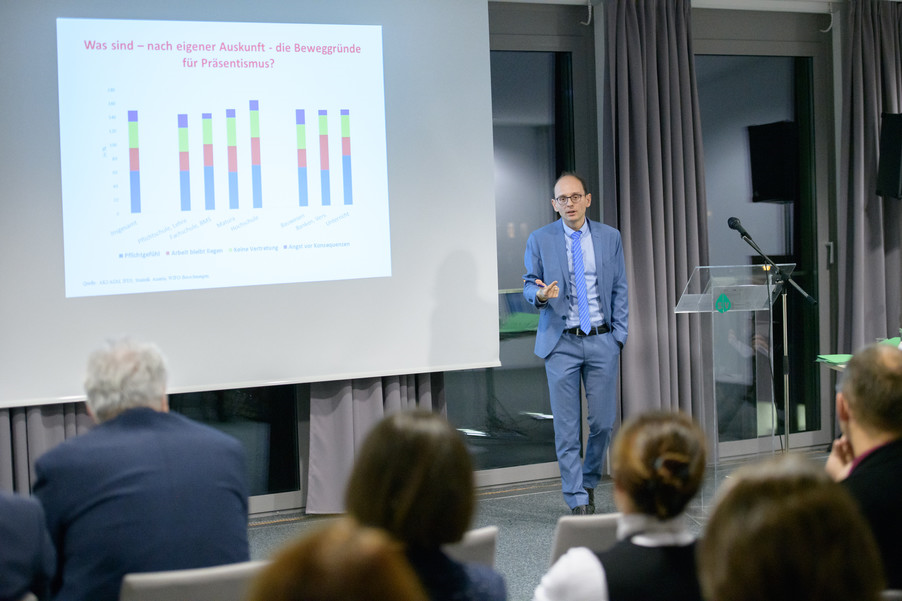
Austrian Absenteeism Report 2018
The absenteeism report has been published since 2007 on behalf of the Austrian Federal Economic Chamber, the Federal Chamber of Labour and the Main Association of Austrian Social Security Institutions. Each year, the report provides an overview of the latest developments in sickness rates in Austria. In 2017, employees spent an average of 12.5 calendar days on sick leave over the course of the year, the same number as in the previous year. The long-standing trend towards a reduction in the length of sick leave spells continued. By contrast, the increase in mental illness as a cause of absence, which has been observed since the 1990s, has levelled off in recent years.
In this year's focus chapter, the Absenteeism Report 2018 deals with the topic "Presentism and Absenteeism". According to the available data, about half of Austrian employees show up at the workplace despite symptoms of illness at least once in the course of the year. A sense of duty towards colleagues is by far the most frequently cited reason for presenteeism, followed by concern about work, which otherwise remains unfinished. Fear of negative consequences is cited as a reason for presenteeism by about one sixth of the respondents, with low-skilled workers being much more affected than others.
Absenteeism concerns a smaller group of employees and is less well researched than presenteeism. According to a rough estimate, the number of people who abuse sick leave at least once a year ranges from 7 to 13 percent of employees. Similar to presenteeism, absenteeism can be understood against the background of the interplay of personal characteristics and work- and organisation-related factors – as a function of "person and situation". Accordingly, the corporate culture, the quality of leadership and the workplace more in general represent important levers for the reduction of both phenomena.
Publications
- Thomas Leoni
- René Böheim
Please contact
























